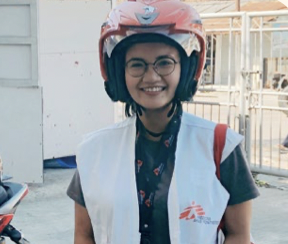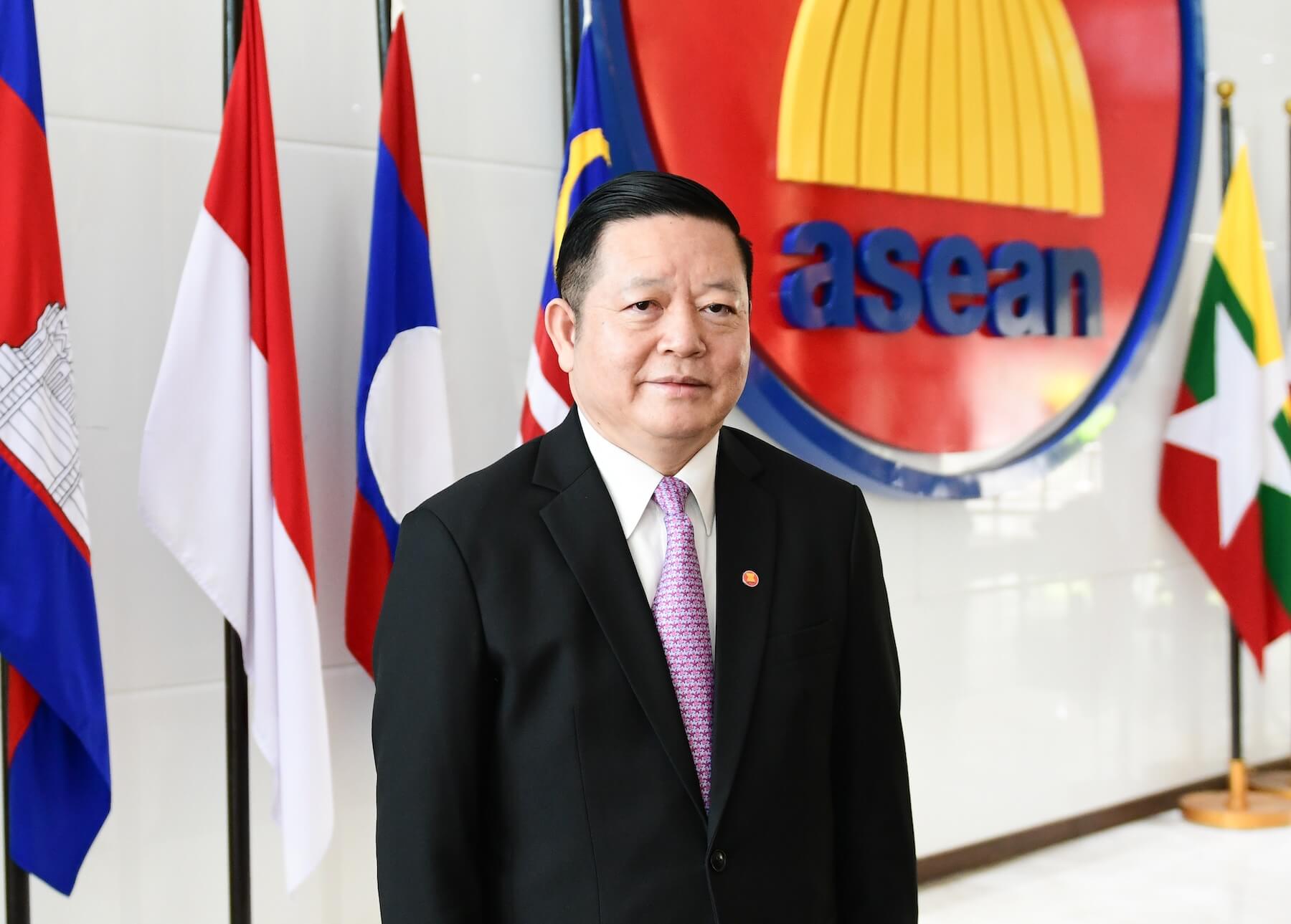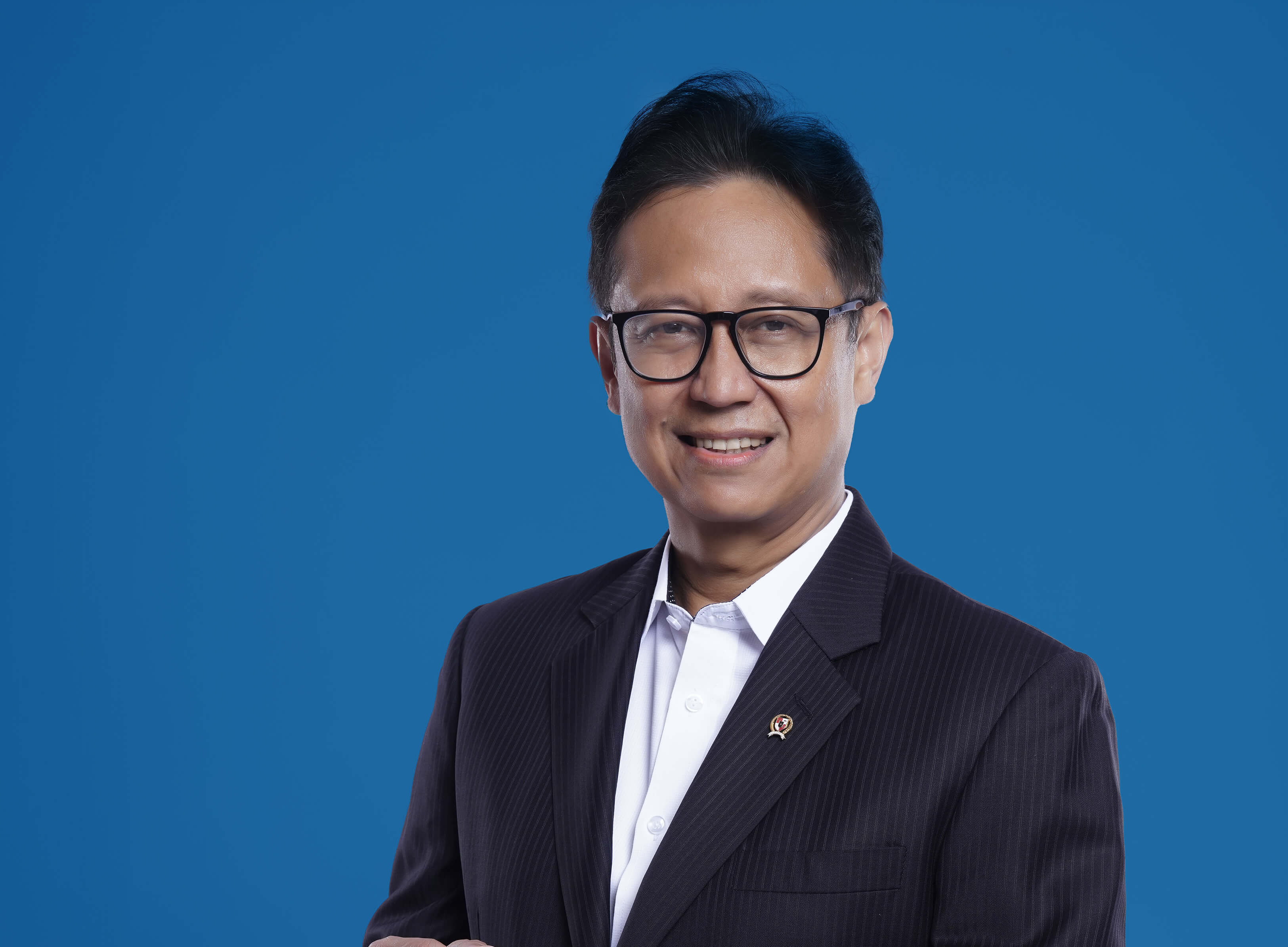


Rangi Sudrajat dreamed of being a humanitarian worker since she was a young girl. She decided to pursue a path of helping the less fortunate, after watching the news about refugees affected by the Kosovo war.
Sudrajat pursued a medical degree at Trisakti University in Jakarta, and in 2015 joined Médecins Sans Frontières (MSF) to realise her dream.
They also joked that they would name the first baby born in the delivery room after me. It was exciting to know that the puskesmas became a networking place or an information centre for local people and other humanitarian workers.
“I felt a special connection with Palu. It’s not that I didn’t feel any connection with my other missions, but when it comes to the place you grew up in and the people you grew up with, the sadness you feel becomes worse, but you feel much happier too when you succeed at something. I felt scared too in Palu, of course. After I moved from a tent to a hotel room, I sprinted out of my room when there was an aftershock, but I got used to it after a while.
“I was also anxious when I was deployed for other missions. Yemen was the scariest for me because there was an active war there. But MSF is good at ensuring the safety of their people because if we’re not safe, how can we help other people? I’ve also faced many challenges on my missions. But I manage to keep myself safe with the limited facilities that I have. I appreciate small luxuries that I have during my missions, like taking a shower with liquid soap, or even applying mosquitos repellent.
“At first, my family said that I should just pursue a career in Indonesia, but they finally supported me because they knew it’s something I’m very passionate about. After five years, there was a time when I wanted to quit so I would not have to leave my family for almost a whole year. But I haven’t found something else that I can do with this much passion. And to be honest, I think I’m quite good at this job. It’s interesting to see the world from a different perspective. Sometimes I’m wondering which one is the real world, my life here in Bekasi or there with the refugees. This whole thing is an eye-opening experience.”
The 31-year-old doctor has been deployed to several refugee camps in Pakistan, Yemen, South Sudan, and Bangladesh. Sudrajat was also one of many medical workers on the ground, treating victims of the earthquake in Palu, Central Sulawesi province, in September 2018 and the tsunami in Banten province in December 2018.
“Palu earthquake was my first mission in Indonesia. My MSF team and I were assigned by the local health agency to help in Sigi regency and worked with a puskemas (community health centre) there, but I stayed in Palu City. Normally, it takes 45 minutes from Palu to Sigi, but it took us two hours at that time because the road was damaged.
“I came nine days after the earthquake, but when I arrived in Baluase district of Sigi, there were still many people who needed treatment. With a mobile clinic, we looked for those who needed medical assistance. Of the total 13 villages in Baluase, I only managed to visit two or three villages in a day due to the difficult terrain. I met people with an open wound and had not been stitched, or someone with a bone fracture but not yet referred to any hospital, and other kinds of injury that had not been followed up due to the difficult access. But they were very patient; many of them even had started to rebuild their houses two to three days after the disaster. I think that’s the characteristic of people in such a situation—they’re resilient.
“We also helped construct a temporary puskemas in Baluase since the original one was destroyed. I drew the blueprint of the puskesmas; where the location of the rooms would be, the delivery room, the pharmacy, etc. I could not stay throughout the whole construction process, but my friends showed me photos when it was completed.
They also joked that they would name the first baby born in the delivery room after me. It was exciting to know that the puskesmas became a networking place or an information centre for local people and other humanitarian workers.
“I felt a special connection with Palu. It’s not that I didn’t feel any connection with my other missions, but when it comes to the place you grew up in and the people you grew up with, the sadness you feel becomes worse, but you feel much happier too when you succeed at something. I felt scared too in Palu, of course. After I moved from a tent to a hotel room, I sprinted out of my room when there was an aftershock, but I got used to it after a while.
“I was also anxious when I was deployed for other missions. Yemen was the scariest for me because there was an active war there. But MSF is good at ensuring the safety of their people because if we’re not safe, how can we help other people? I’ve also faced many challenges on my missions. But I manage to keep myself safe with the limited facilities that I have. I appreciate small luxuries that I have during my missions, like taking a shower with liquid soap, or even applying mosquitos repellent.
“At first, my family said that I should just pursue a career in Indonesia, but they finally supported me because they knew it’s something I’m very passionate about. After five years, there was a time when I wanted to quit so I would not have to leave my family for almost a whole year. But I haven’t found something else that I can do with this much passion. And to be honest, I think I’m quite good at this job. It’s interesting to see the world from a different perspective. Sometimes I’m wondering which one is the real world, my life here in Bekasi or there with the refugees. This whole thing is an eye-opening experience.”
Interviewed by Novia D. Rulistia. The conversation has been condensed and edited for clarity. The views and opinions expressed in the text belong solely to the interviewee and do not reflect the official policy or position of ASEAN.








